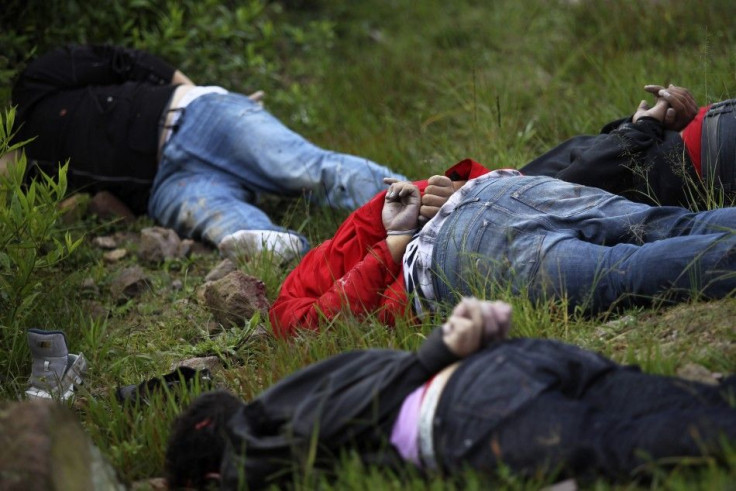Honduras Has World’s Highest Murder Rate: UN

The small nation of Honduras has the dubious distinction of having the highest murder rate not only in Central America, but in the world.
The United Nations Office on Drugs and Crime (UNODC) recently reported that in Honduras, 82.1 murders occurred for every 100,000 residents last year – or about 20 murders every day -- a doubling in only five years.
The Violence Observatory at the National Autonomous University of Honduras estimates the murder rate could reach 86 per 100,000 inhabitants by the end of this year, a rate far higher than such high-profile violent states like Brazil, Venezuela or Mexico.
Nestled between Guatemala to the west, El Salvador to the southwest and Nicaragua to the southeast, Honduran is enduring an ever-escalating wave of bloodshed owing principally to increased drug trafficking and youth gang activity.
In 2009, Honduras had a murder rate of 66.8 for every 100,000 residents, sharply higher than the 46.2 figure from only three years before.
Between 2004-2009, almost 18,500 murders were recorded in the country whose total population is under 8 million. More than one-third of those deaths are believed to have been the result of contract killings.
Honduras is believed to be a crucial stop on the route cocaine traffickers take from South America into Mexico and the United States.
A report by the country’s human rights commissioner from 2009 lamented not only the widespread violence in Honduras, but also the failure of the police to apprehend the criminals behind the bloodshed.
Since June 2009, when President Mel Zelaya was deposed by a military coup, waves of political violence have been added to the deadly mix.
Now, there are implications that the police themselves are involved in the wave of killings through their corrupt associations with criminal drug gangs.
Recently, the horrific murder of Alejandro Castellanos, son of Julieta Castellanos, rector of the National Autonomous University, has shaken the nation. Eight police officers were found to be involved in the deaths of Alejandro and a friend of his. Four of the cops have been arrested, while the others have fled.
The tragedy is even bigger when it is the state that causes it, and when the state protects those responsible for the crime, Julieta told BBC.
In response to the high-profile murders, Honduran President Porfirio Lobo fired his five most senior police commanders. His government has also launched something called “Operation Lightning,” a program to crack down on violent crime with the help of the military.
“Operation Lightning intends to guarantee the presence of authorities in high-conflict areas,” Lobo has said.
However, Security Minister Pompeyo Bonilla warned that while the presence of the army on Honduras’ dangerous streets has appeared to have reduced the violence, it’s only a temporary measure.
Bonilla also said he thinks that 1,000 of the nation’s 14,500 policemen were corrupt.
I think a criminal without power is less dangerous than a criminal with power and a uniform, he told BBC.
© Copyright IBTimes 2024. All rights reserved.











